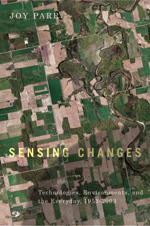This Canada Day, before the beers, the barbeque and the fireworks, make a little time to turn on the radio (or your computer) and learn something that you may not have known about Canadian history. Beginning 1 July 2010, CJSW 90.9 FM Radio in Calgary will begin airing its year long series “Today in Canadian History.” This daily program explores the uniqueness, diversity and often complicated history of Canada through interviews with professors, professional and non-professional historians and journalists speaking on events in Canadian history that may not have been covered in your high school history class. The program explores a wide range of subjects, from the disappearance of famed Group of Seven artist Tom Thomson, to the execution of Canadian soldiers in the First World War. The topics are diverse, and the interviewees are passionate about the stories that they have to tell.
For those in the Calgary listening area, the broadcasts can be heard each weekday morning on CJSW 90.9 FM, for everyone else each episode will be made available by online podcasts posted at www.cjsw.com. For those interested in contributing, the series producers are still open to submissions for unfilled dates. Ideas can be submitted to Producer Joe Burima at todayincanadianhistory@cjsw.com.




 The
The 
